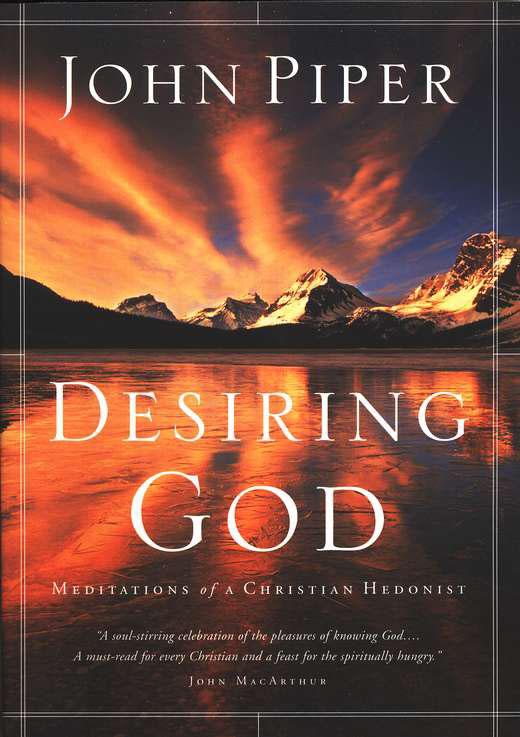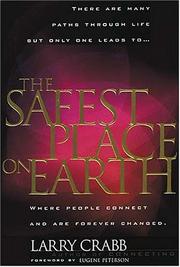 |
| "Things fall apart; the center cannot hold." |
Scripture: 1 Timothy 3:14-16
These things write I unto thee, hoping to come unto thee shortly: [15] But if I tarry long, that thou mayest know how thou oughtest to behave thyself in the house of God, which is the church of the living God, the pillar and ground of the truth. [16] And without controversy great is the mystery of godliness:
God was manifest in the flesh,
justified in the Spirit,
seen of angels,
preached unto the Gentiles,
believed on in the world,
received up into glory.
I. Introduction: One of the greatest poets of the 20th century was William Butler Yeats.
One of the greatest poems that he wrote was “The Second Coming.” The title has a powerful Biblical feel, but the poem only borrows from the Biblical images to present something quite the contrary.
Yeats’ “Second Coming” was not the blessed event in Biblical thought, but something dark and sinister.
He wrote:
Yeats’ “Second Coming” was not the blessed event in Biblical thought, but something dark and sinister.
He wrote:
Turning and turning in the widening gyre
The falcon cannot hear the falconer;
Things fall apart; the centre cannot hold;
Mere anarchy is loosed upon the world,
The blood-dimmed tide is loosed, and everywhere
The ceremony of innocence is drowned;
The best lack all conviction, while the worst
Are full of passionate intensity.
Look then upon one line here: Things fall apart, the center cannot hold.
This poem was written in 1919. Written in the aftermath of World War I; written in the aftermath of the Russian Revolution, the Irish rebellion, and other calamities of the early decades of the 20th century.
What do you do when the center cannot hold? When the force, the idea, the glue that holds things together for a civilization no longer holds?
Many of the political events, most of the philosophies, many of the social upheavals, most of the troubles of the 20th century came from the loss of a center, the loss of something that could keep society and the world together, sane.
Thinkers both Christian and non-Christians have noted the emptiness or lack of cohesion to the world in modern times.
Joseph Conrad spoke of “The heart of darkness.”Jean-Paul Sartre titled a play “No Exit.”
Friedrich Nietzsche spoke of “gazing into the abyss.”
Christians have noted this emptiness as well:
Herman Dooyeweerd spoke of our being “in the twilight of modern thought.”
And Francis Schaeffer, surveying the emptiness of modern ideas, asked, “How should we then live?”
There is no end to the speculations regarding the fall of the Roman Empire. And there is no end to the thoughts contained in books such as Are We Rome? The Fate of an Empire and the Fate of America
And if we are talking about the fall of civilizations, the despair of modern philosophies, the emptiness of modern materialism, and the hollowness of modern politics, that interests quite a few of us.
“We are sitting here, solving the world’s problems,” we say, gathered around a table at Starbucks.
But there are families that are following the pattern of civilizations, except faster. Dysfunctional families.
And there are individuals suffering breakdowns.
There has to be something to pull people together. Something to pull an individual together. A family. A civilization.
There has to be “A Declaration of Independence” to draw the commitments of the colonists.
There has to be the “fellowship of the ring” to bring men and dwarfs and elves and hobbits together for a common cause.
There has to be what R. J. Rushdoony called “The Foundations of Social Order.”
Things fall apart, the center cannot hold.
That is the story of man.
And then in this emptiness God speaks.
II. God Creates a Place where things don’t fall apart, where the center holds.
1 Tim. 3:14-16 These things write I unto thee, hoping to come unto thee shortly: [15] But if I tarry long, that thou mayest know how thou oughtest to behave thyself in the house of God, which is the church of the living God, the pillar and ground of the truth.
3 Phrases to describe the church:
The house of God
The church of the living God
The pillar and ground of the Truth
There are lots of implications, things to think about, from this.
God’s house, God’s family: Heaven, Angels, Saints in glory, etc.
God’s household, family, is the church.
Secondly, we mentioned in past weeks about elders and deacons managing households. Managing the home is a series in itself. More than just a passing phrase.
2 problems: One is, of course, families that are essentially pagan.
The other problem is perfectionism. You don’t have children, you have automatons. You don’t have a home, you have a museum. You don’t have a wife, you have an echo.
God’s household is far from perfect.
Third, people can gather together once a week and share an experience—emotionally, intellectually, physically, etc. For an hour or 2, they are all together. Then it is over and everyone goes home.
What I am describing can either be a worship service or a ball game.
B. The Church of the Living God: The God-Alive Church
Be careful about calling a church a dead church.
This letter is arriving in Ephesus where people worshipped Diana.
We once went to the Parthenon in Nashville. There is a great and awe-inspiring statue of Athena. It is amazing. (You might have seen it in the movie “Percy Jackson and the Lightning Thief.”)
One problem: It is just scrap metal.
The church is the temple of the Living God.
C. The pillar and ground or buttress of the truth.
The Temple to Diana had over 150 pillars.
When you travel to a city, you notice the powerful, huge, dominating buildings.
The pillar and ground of the Truth.
D. This all seems to be a world within a world, another dimension, a hidden universe:
Right here and elsewhere: God’s family, the place where God is alive, the pillar—visible support—of Truth.
Christology—if you want the theology term
Putting it more simply: Jesus Christ
Great is the mystery, the revelation. No wonder so many books, hymns, studies, poems, paintings, stories have been told of Christ.
And Paul now weighs in on a church topic and comes down strongly in favor of
Contemporary Christian Music and Praise and Worship Music.
A Song, A Creed.
A theological statement as deeper than Calvin’s Institutes, more moving than an Isaac Watts’ hymn, more elaborate than a cathedral.
For every debate that says Christ or the church? Paul says YES.
For every debate that says Christ or doctrine? Paul says YES.
For every debate that says reason or emotion? Paul says YES.
In thinking about these statements about Christ, if your mind doesn’t explode, you don’t get it.
If your emotions don’t soar, you don’t get it.
The Creed of the Church. The center that holds.
3 couplets: 3 pairs of phrases.
Each couplet contains a contrast, like the two natures of Christ:
A. The Revelation of Christ
He appeared in a body,
Was vindicated by the Spirit.
He appeared in a body—the incarnation, the birth of Christ.R. Kent Hughes: He stood at the rim of the universe and dove headlong past a billion starts, through the Milky Way, and into the womb of the Virgin Mary, where he swam and grew until his birth that cold winter’s night.
Was vindicated by the Spirit is the other bookend of that story: Romans 1:4 Christ “through the Spirit of holiness was declared with power to be the Son of God by his resurrection from the dead.”
Two couplets: Christmas and Easter.
Christ was preached among the nations
Heavenly angels and earthly nations. The supernatural and the natural.
Angels announced his coming to Zecharias and Mary.
Angels proclaimed his birth.
Angels ministered to Christ in the wilderness,
An angel appeared by Him at Gethsemane, strengthening Him (Luke 22:43)
Angels sat by his empty tomb;
Angels proclaimed the resurrection.
Angels sing His praises in glory.
Christ is then preached to all the nations, all people. The King James says, to the Gentiles.
Christ was taken up into glory.
An earthly reception and a heavenly reception.
[Post Script: The complete poem by William Butler Yeats
The Second Coming
Turning and turning in the widening gyre
The falcon cannot hear the falconer;
Things fall apart; the centre cannot hold;
Mere anarchy is loosed upon the world,
The blood-dimmed tide is loosed, and everywhere
The ceremony of innocence is drowned;
The best lack all conviction, while the worst
Are full of passionate intensity.
Surely some revelation is at hand;
Surely the Second Coming is at hand.
The Second Coming! Hardly are those words out
When a vast image out of Spiritus Mundi
Troubles my sight: somewhere in sands of the desert
A shape with lion body and the head of a man,
A gaze blank and pitiless as the sun,
Is moving its slow thighs, while all about it
Reel shadows of the indignant desert birds.
The darkness drops again; but now I know
That twenty centuries of stony sleep
Were vexed to nightmare by a rocking cradle,
And what rough beast, its hour come round at last,
Slouches towards Bethlehem to be born?]














